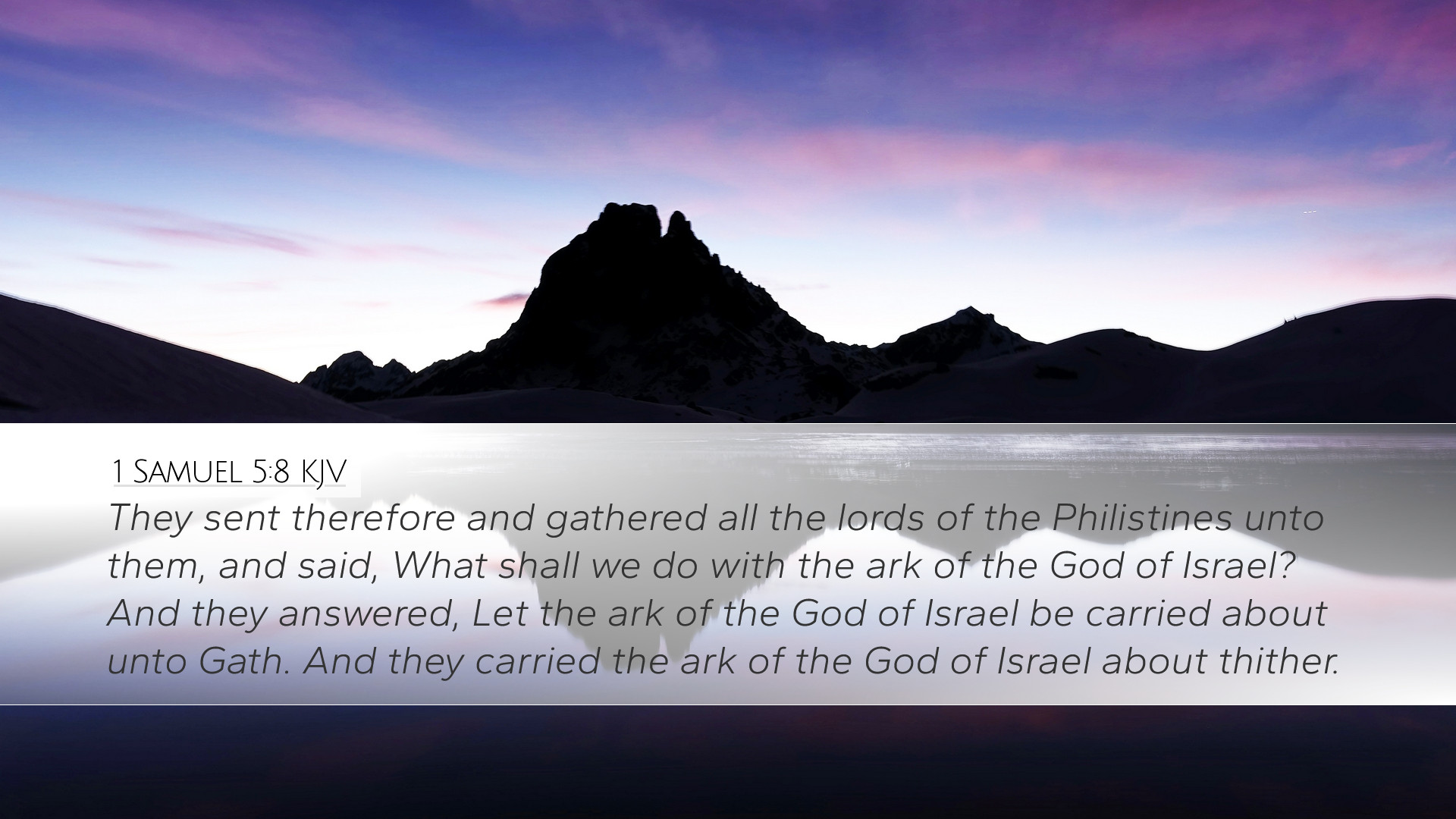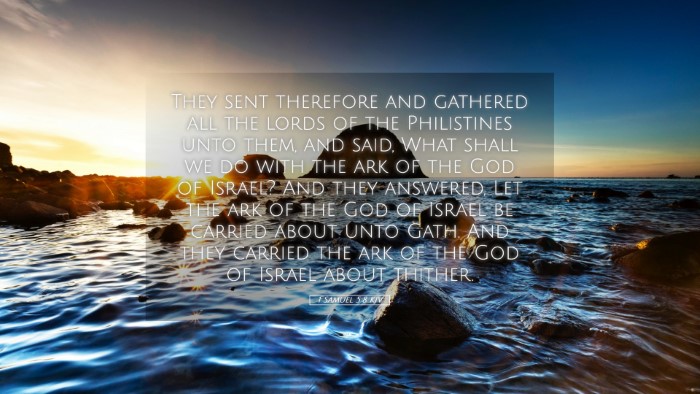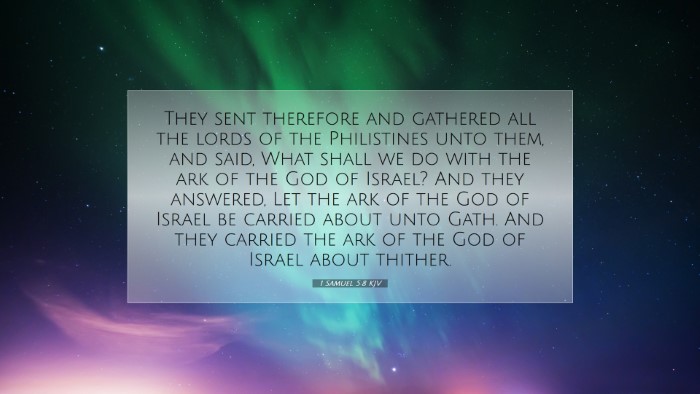Bible Commentary on 1 Samuel 5:8
Verse Context: 1 Samuel 5:8 states:
“So they sent and gathered together all the lords of the Philistines, and said, 'What shall we do with the ark of the God of Israel?' And they answered, 'Let the ark of the God of Israel be carried about unto Gath.' And they carried the ark of the God of Israel about thither.”
Introduction
This verse captures a significant moment in the narrative of the Philistines' interaction with the Ark of the Covenant after their victory over Israel. The Ark, representing the presence of God among His people, becomes the center of a dilemma for the Philistine leaders. In examining this passage, we will draw insights from renowned public domain commentators such as Matthew Henry, Albert Barnes, and Adam Clarke, highlighting the theological, historical, and practical implications of the verse.
Theological Insights
The Sovereignty of God: Despite their victory, the Philistines recognize an unsettling presence in the victory they seemingly achieved over Israel. Matthew Henry notes how God’s presence in the Ark does not guarantee victory for those who oppose Him. The implications of divine sovereignty are so profound that even amongst the conquerors, there is an awareness of God's might.
Fear and Acknowledgment: Albert Barnes highlights the fright and turmoil the Philistines experienced. The Ark brought affliction upon them, showing that the power of God cannot be ignored, even by His enemies. The fear of the Philistines demonstrates the ancient belief that the gods of the nations significantly impacted their fortunes. Consequently, they gather to seek a course of action, revealing their recognition of the Ark’s potency.
Idolatry versus True Worship: Adam Clarke brings attention to the contrast between the idolatry of the Philistines and the worship of Israel. The Ark, carried into the land of the Philistines, represents the true God. In juxtaposition, the Philistine god Dagon has just fallen before the Ark, symbolizing the futility of their idol worship. This illustrates a key theme throughout Scripture: God will not share His glory with idols.
Historical Context
This event occurs after the Philistines' victory at Aphek, where Israel suffered a significant defeat, and the Ark was captured. The Philistines took the Ark to Ashdod, placing it in the temple of Dagon. This action reflects the cultural practice of subjugating enemies’ deities, indicating the Philistines’ view of their own supremacy.
Philistine Confusion: The gathering of the Philistine lords represents a council of war, demonstrating the seriousness of the situation. They are faced with plagues and destruction linked to the presence of the Ark. Barnes explains that their decision to move the Ark symbolizes desperation and an attempt to evade divine wrath, thus rejecting the acknowledgment of the power of Israel’s God.
The Ark and Its Significance
The Ark of the Covenant is not merely a physical object but a profound symbol of God's covenant relationship with Israel. Its presence signifies divine favor and guidance. Matthew Henry remarks on the Ark's presence and its function as a means of divine encounter. For the Philistines, the Ark becomes a harbinger of judgment rather than a trophy of victory.
Theological Implications of the Ark's Transport: The Philistine strategy to relocate the Ark to Gath illustrates an attempt to distance themselves from its repercussions. Adam Clarke elaborates on their misguided understanding; they believed they could control God’s presence rather than submit to it. This reflects a broader theological principle: humanity often seeks to manipulate divine principles rather than embrace them.
Practical Applications
This narrative offers valuable lessons for contemporary believers and church leaders:
- Recognizing God's Sovereignty: Like the Philistines, pastors and believers must acknowledge that God reigns supreme. Attempts to usurp His authority or downplay His influence lead to spiritual confusion.
- The Importance of Reverence: Engaging with God requires a posture of humility and reverence. The reverence illustrated by the Philistine lords, albeit born out of fear, teaches the importance of recognizing God’s holiness.
- Understanding Our Idols: The challenge of idolatry remains relevant today. Whether in personal lives or church contexts, discerning what we inadvertently place before God is vital for authentic worship and witness.
Conclusion
1 Samuel 5:8 is rich in theological, historical, and practical insights. It prompts an examination of how God interacts with human affairs and emphasizes the futility of opposing His will. In reflecting on this verse, theologians, students, and church leaders are reminded of the necessity of acknowledging the sovereign power of God, ensuring that His presence is both honored and revered within their communities.


